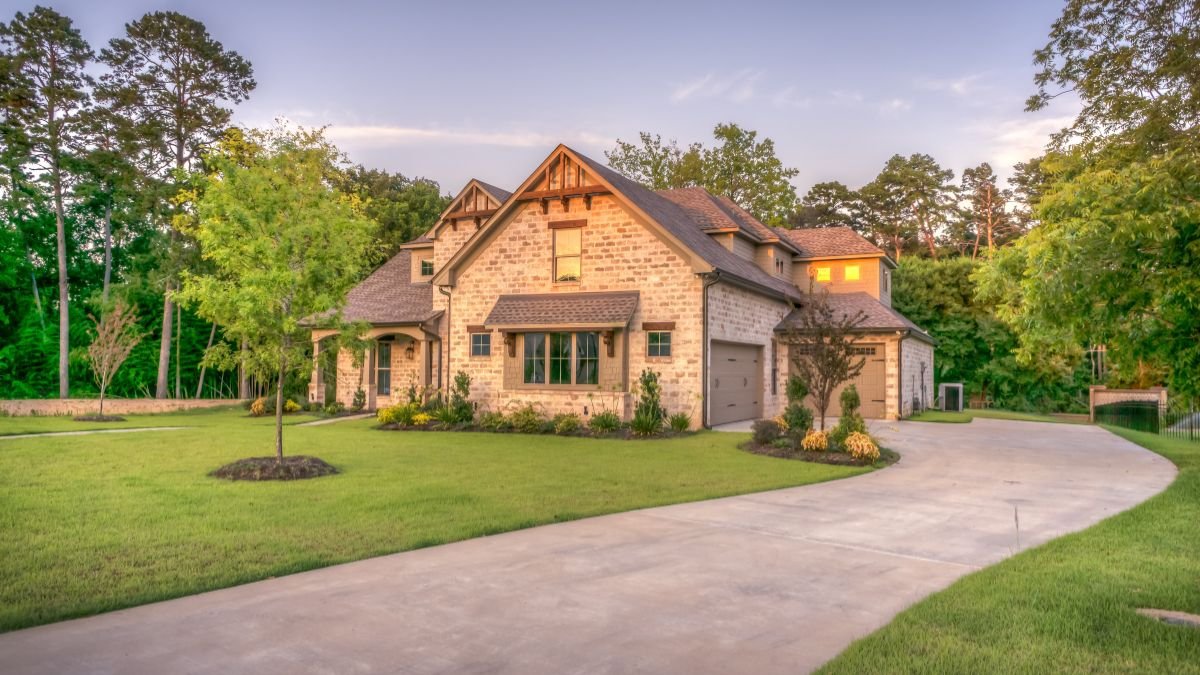Technology has become an integral part of our daily lives, and its influence continues to extend into our homes. With the rise of smart home devices, automation, and tech-driven solutions, homeowners are enjoying more comfort, convenience, and control than ever before. From enhancing security to increasing energy efficiency, the benefits of technology for the home are vast. This article delves into how tech is transforming home life and why embracing it can lead to a smarter, safer, and more efficient household.
Table of Contents
1. Improved Home Security
One of the most significant advantages of modern home technology is the increased level of security it offers. Traditional locks and alarms have evolved into smart security systems that allow homeowners to monitor and protect their property from anywhere in the world.
Smart Security Systems
Smart security systems, like those offered by companies such as Ring and Nest, provide real-time monitoring and instant notifications. These systems often come equipped with cameras, motion detectors, and two-way audio, allowing homeowners to see and speak to anyone at their door from their smartphone. Advanced models can even differentiate between people, pets, and vehicles, ensuring that you only receive relevant alerts.
Remote Monitoring
Remote monitoring is another key benefit. With tech-integrated security, you no longer need to be at home to ensure its safety. Whether you’re at work or on vacation, you can check in on your property and ensure everything is secure, giving you peace of mind.
2. Energy Efficiency and Cost Savings
In a world where environmental concerns are becoming more critical, energy efficiency is a top priority for many homeowners. Smart technology plays a pivotal role in reducing energy consumption, ultimately leading to lower utility bills and a smaller carbon footprint.
Smart Thermostats
Smart thermostats, like those from Ecobee or Google Nest, learn your heating and cooling preferences and adjust accordingly. By automating temperature control, they can reduce energy usage when you’re not home or adjust the temperature in specific rooms based on occupancy. This not only saves energy but also reduces your utility bills.
Smart Lighting
Similarly, smart lighting systems allow homeowners to control their lights remotely or set them on schedules. With features like motion detection and dimming, smart lights only operate when necessary, minimizing energy waste. Some systems even sync with natural daylight patterns, adjusting indoor lighting to complement the time of day, further optimizing energy use.
3. Convenience and Automation
The convenience that home technology offers is unparalleled. Smart home devices are designed to make everyday tasks easier, saving you time and effort. Automation has made it possible to control multiple aspects of your home with just your voice or smartphone.
Voice-Controlled Assistants
Virtual assistants like Amazon’s Alexa, Google Assistant, and Apple’s Siri have become household staples, offering hands-free control of smart devices. Whether you want to adjust the thermostat, play music, or check your calendar, voice-controlled assistants make it possible to manage your home with simple voice commands.
Home Automation Systems
Advanced home automation systems, such as Samsung SmartThings or Apple’s HomeKit, allow you to connect multiple smart devices into one cohesive system. These systems enable you to automate everyday tasks—like turning off all the lights when you leave the house or setting up a morning routine where the coffee starts brewing and the blinds open automatically. With the right setup, your home can almost run itself.
4. Enhanced Entertainment Experiences
Technology has revolutionized home entertainment, offering endless options for movies, music, gaming, and more. With smart TVs, streaming devices, and high-quality audio systems, creating an immersive home theater experience is easier than ever.
Smart TVs and Streaming
Smart TVs allow users to access streaming services like Netflix, Hulu, and Disney+ without the need for external devices. Additionally, these TVs often integrate with other smart devices, making it easy to cast content from your phone or control your viewing experience with voice commands.
Home Audio Systems
With the integration of smart speakers like Sonos and Bose, homeowners can enjoy high-quality sound throughout the house. These systems can be controlled via smartphone or voice assistant, offering a seamless way to play music, podcasts, or audiobooks from any room.
5. Better Home Management
Managing a household can be challenging, but technology has made it easier than ever to stay organized and efficient. From meal planning to cleaning schedules, smart tech can streamline many of the tasks that come with running a home.
Smart Appliances
Smart appliances, such as refrigerators, ovens, and washing machines, are designed to make everyday chores more manageable. Smart fridges can track expiration dates, suggest recipes, and even create grocery lists. Smart ovens can be preheated from your phone, while smart washing machines notify you when a load is finished or suggest the best settings for specific fabrics.
Home Cleaning Robots
Cleaning the house has never been more effortless thanks to robotic vacuum cleaners like Roomba or Roborock. These devices can clean floors autonomously, navigating around furniture and obstacles. Some models even offer mopping functions, ensuring that your floors remain spotless with minimal effort on your part.
6. Health and Wellness Monitoring
Another exciting area where home technology is making a difference is health and wellness. Smart health devices, fitness trackers, and air quality monitors are all part of a broader trend toward healthier living.
Smart Health Devices
Devices like the Withings smart scale or the Apple Watch can track vital health metrics such as heart rate, body fat percentage, and even blood pressure. These devices often sync with apps that provide insights and trends, helping homeowners stay informed about their health.
Air Quality Monitors
Air quality monitors like those from Airthings or Awair track the levels of pollutants, allergens, and humidity in your home. These devices provide real-time data and recommendations for improving indoor air quality, ensuring that you and your family breathe clean air.
7. Increased Property Value
Investing in smart home technology can significantly increase the value of your property. As more homebuyers look for tech-integrated homes, having a smart home system can make your property more attractive to potential buyers.
Appeal to Modern Buyers
Millennials and Gen Z, who are becoming a more significant part of the housing market, often prioritize tech features in their homes. Installing smart thermostats, security systems, and energy-efficient lighting can make your home stand out in a competitive market, leading to a higher resale value.
FAQs About Tech for Home
Q: Is it expensive to set up a smart home?
A: The cost of setting up a smart home depends on the devices and systems you choose. While some advanced systems can be costly, there are many affordable options available that offer significant benefits without breaking the bank. Start small with a few devices, and expand your system over time.
Q: Can smart home devices be hacked?
A: Like any internet-connected device, smart home technology can be vulnerable to hacking if not properly secured. To minimize risks, use strong, unique passwords, enable two-factor authentication, and regularly update your devices to the latest firmware.
Q: Do I need a lot of technical knowledge to use smart home devices?
A: Most smart home devices are designed to be user-friendly and can be set up with minimal technical knowledge. Many devices come with easy-to-follow instructions, and apps are generally intuitive to use. If you’re ever unsure, there are plenty of online resources and tutorials to help guide you through the setup process.
Q: Can smart home devices work together?
A: Yes, many smart home devices are designed to integrate with each other through platforms like Apple HomeKit, Google Home, or Amazon Alexa. This allows for seamless communication between devices, creating a unified system where you can control everything from a single app or voice assistant.
Q: Will smart home technology become obsolete?
A: Like any technology, smart home devices will evolve over time, but the industry is growing rapidly, with constant improvements and updates. While certain models may become outdated, most manufacturers offer software updates to extend the life of their products.
Conclusion
The benefits of technology for home are undeniable, offering improved security, energy efficiency, convenience, and even health monitoring. As smart home tech becomes more accessible and user-friendly, more homeowners are discovering how it can enhance their lives. Whether you’re looking to simplify everyday tasks or increase the value of your property, embracing home technology is a wise investment for the future.










